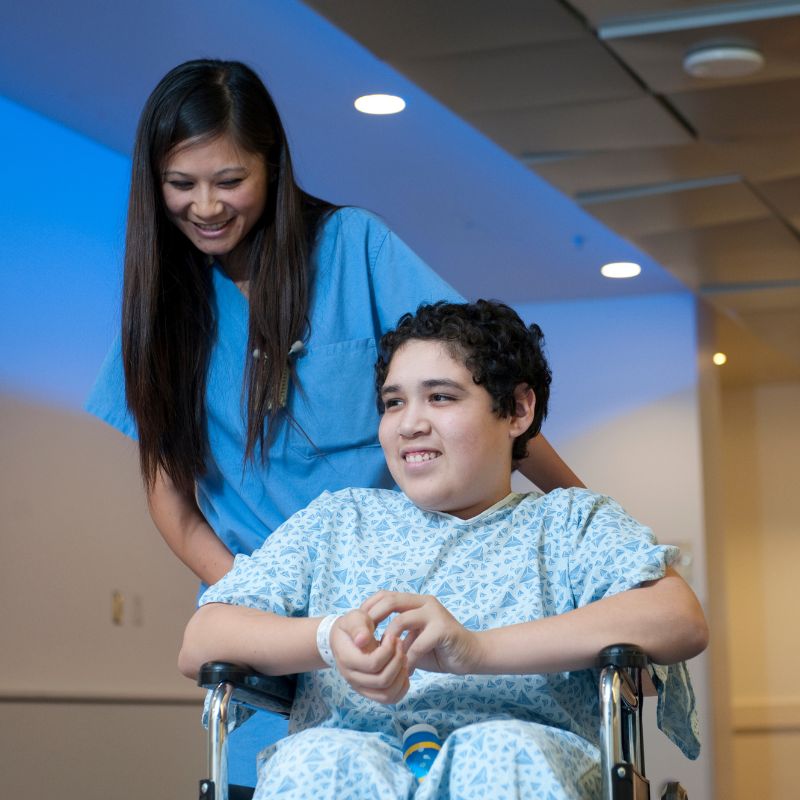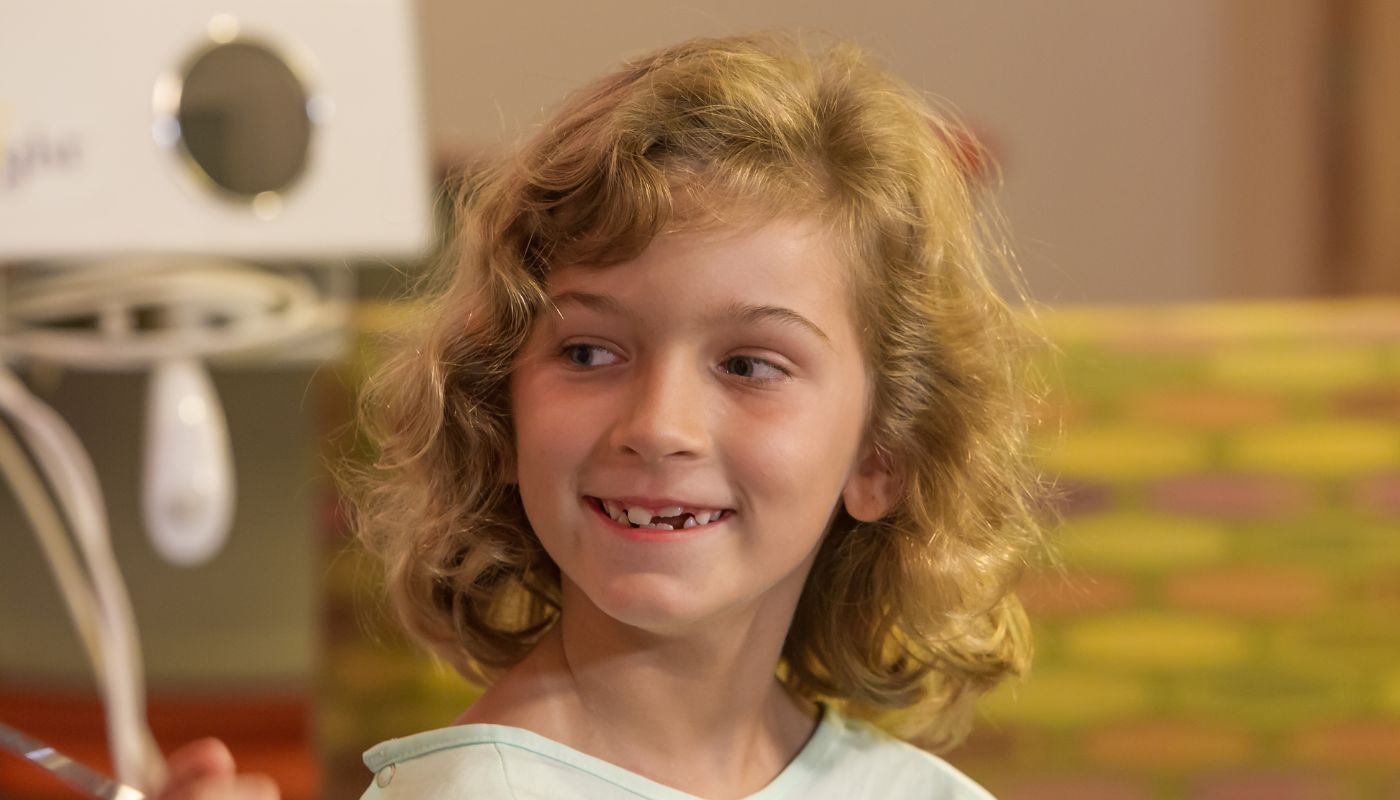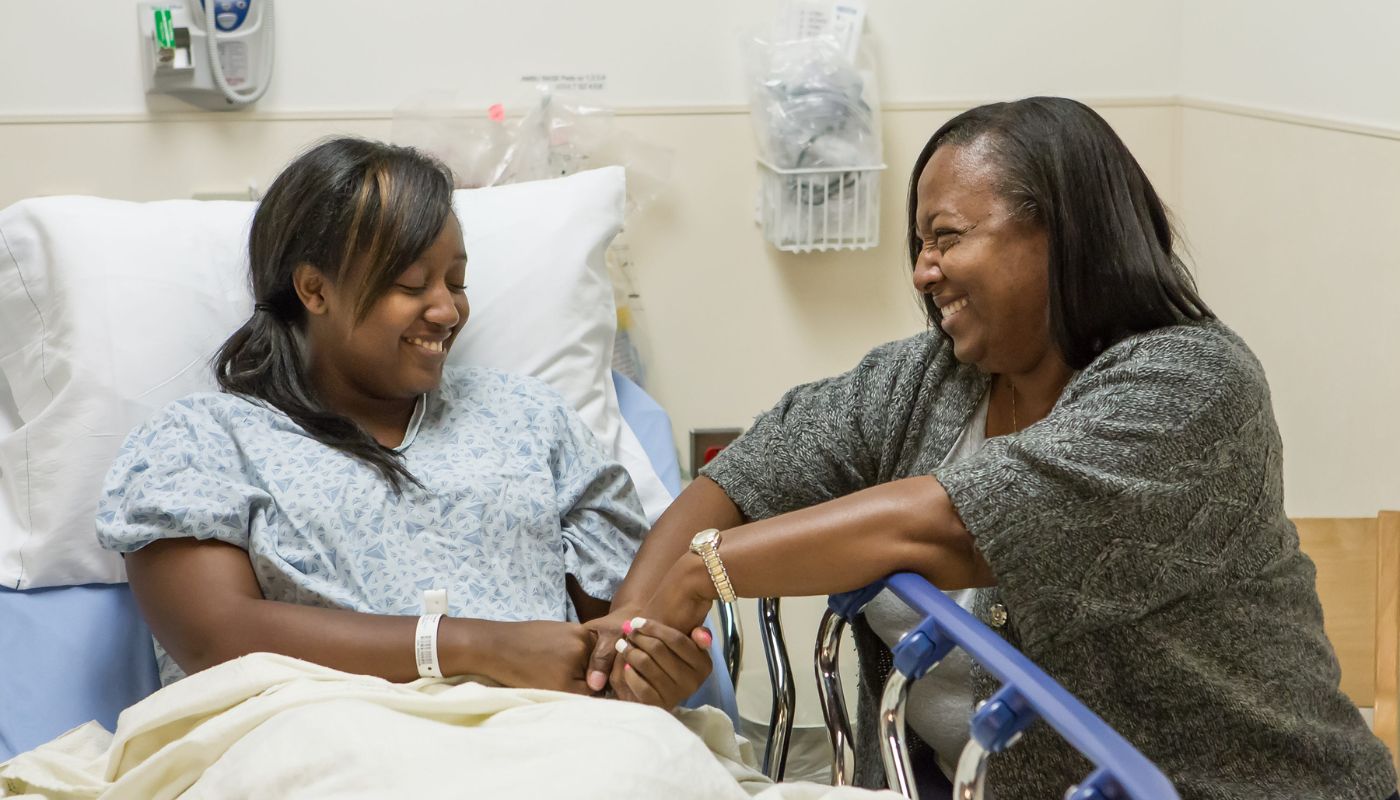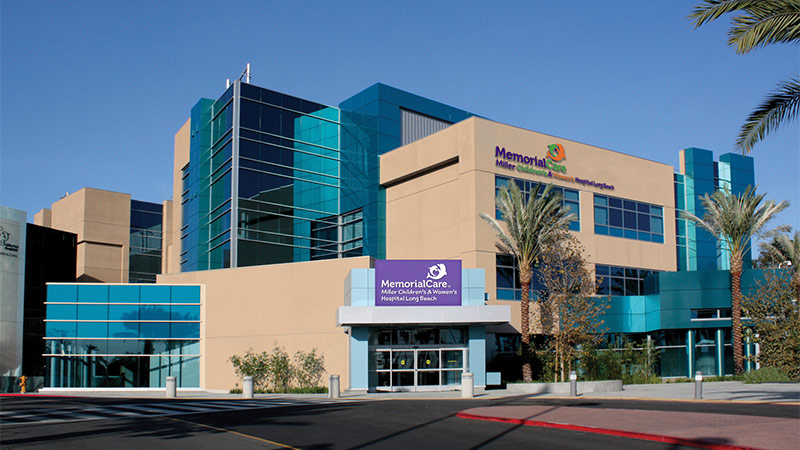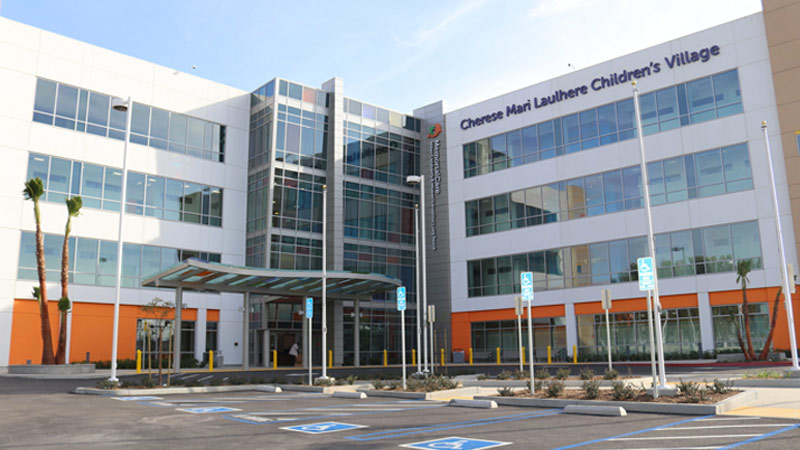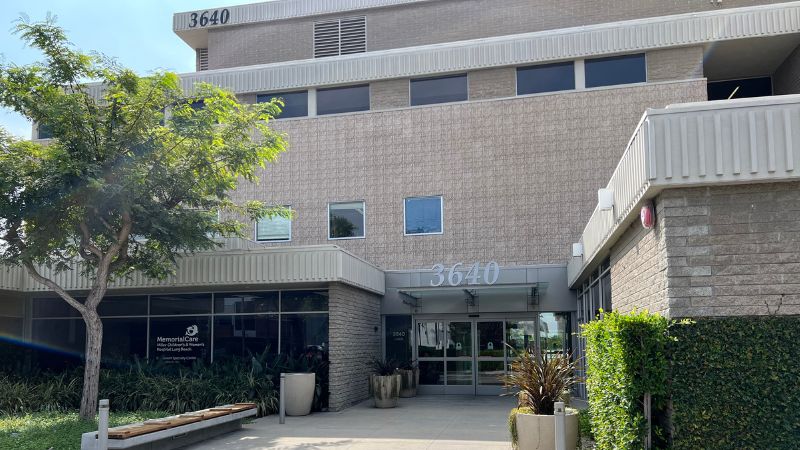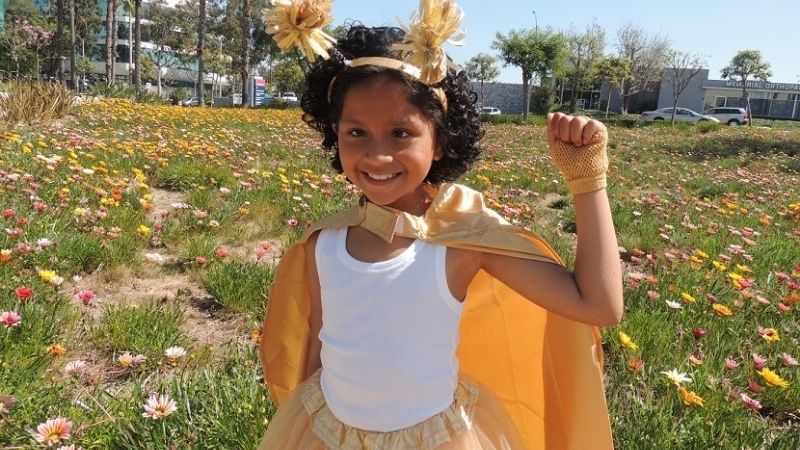Our Surgical Center cares for children from newborns to young adults, who need common or complex surgical treatments in a leading, state-of-the-art surgical center designed just for kids. Board-certified specialty surgeons and an expert surgical care team, are specially trained to care for children, because children’s surgical needs are different than that of adults.
Generally, children who need surgery in the torso area to treat conditions such as, hernias, undescended testicles, head and neck masses, non-cardiac thoracic problems, chest wall deformities and some cancerous tumors may be seen by a general pediatric surgeon. Our general pediatric surgeons perform leading minimally invasive surgeries, such as gall bladder removals and appendectomies, that can usually be done in an outpatient setting (children don’t need to spend the night).
Other surgical specialties done in our advanced surgical center include cardiac, ENT, plastic, orthopedic, neurosurgery and urology. Working with in-house pediatric sub-specialists, that cover more than 30 specialties, allows our surgical care team to provide thorough, coordinated care for each child.
Our surgical care team also have extensive experience in neonatal surgery, treating congenital defects in newborns and premature infants, including major vascular procedures. All pediatric surgeons work closely with anesthesiologists, to provide anesthesiology care, and ensure a child’s comfort needs are met. We also care for injured children, who have been admitted through the trauma or emergency department.
Designed Just for Kids:
We provide surgical care in a family centered environment that comforts children and lessens their anxieties and fears. A caring, compassionate and kid-friendly surgical team includes expert pediatric surgeons, anesthesiologists, nurses and surgical assistants, all extensively trained and experienced in pediatric surgical care. From minimally invasive outpatient procedures, to more complex cases, our surgical center’s seven operating suites are equipped with leading-edge technology designed specifically for the treatment of children.
- Designed to ease children’s fear of surgery, the surgical center features colorful and comfortable waiting areas, family lounges and playrooms.
- When a child is waiting for surgery, they will go into a “pre-op” (pre-operation) area. There also is a pre-op playroom where young patients can relax with books, play games, do arts and craft activities and watch TV while they wait to go into surgery.
- It is important to note that a child, who is going into surgery, never sees a child coming out of surgery, who is still asleep. There are two separate hallways to lead patients to and from the surgical suites, helping to decrease anxiety and fears of the patients who are going into surgery.
- The induction (pre-op) room is where the patient will go to get their anesthesia, before going into one of the surgical suites. Most of the time, one parent may come with their child during the induction of anesthesia to help lessen anxieties and fear, unless it is a special circumstance. It is important for parents to ask their child’s surgeon about this.
- There are seven private state-of-the-art pediatric surgical suites, where patient records, laboratory results and imaging studies are available to the surgical team at the touch of a button, while TV monitors are mounted strategically so patients can fall asleep watching their favorite movie.
- A colorful, comfortable family lounge and waiting area is available for parents and their siblings to wait for patients to come out of surgery.
- A family friendly post-anesthesia recovery unit (PACU) is where the child will go after surgery, to recover from the anesthesia.
- After surgery, patients awaken in the Post Anesthesia Care Unit (PACU), where they are closely monitored by the PACU staff. This often referred to by our little patients as the “wake-up” room. Family members are invited to stay with their child as they recover from surgery. Private recovery rooms with TVs are available for patients and their families, if additional recovery time is required.
Take a Tour!
Our Child Life Program offers pre-surgical tours to help prepare children for surgery, understand what is going to happen and reduce their anxieties. The surgical care team strongly encourages families scheduled for a procedure to participate. Call the Child Life Program at (562) 933-8060 to schedule an onsite tour or watch our virtual tour.
Surgery Process
We want you and your child to be as informed, and as comfortable as possible. We have put together some tips and information to help prepare you and understand what to expect throughout the surgery process.
Preparing your child for any surgical procedure can help them feel less anxious and tolerate surgery and anesthesia better.
- Ask questions of your child’s surgeon, anesthesiologist and nursing team in order to better understand what your child will experience. This will give you confidence and enable you to talk calmly to your child.
- Speak honestly with your child about what will happen, and listen to your child’s concerns.
- Encourage your child to participate in medical play. Use a play medical kit at home to familiarize your child with tools the care team may use, such as a stethoscope, masks and gloves.
- Include siblings in preparation and encourage them to ask questions, too.
- Let your child know that the surgery is being done to help them, and that after surgery, they will start to feel better.
- Use simple language that your child can understand like "sleepy medicine" for anesthesia.
- Encourage play and reading books about hospitalization together.
The more you prepare your child for surgery, the more they will understand what is going to happen and will reduce their anxiety.
- Please be sure that your child has a bath or shower and adequate rest the night before surgery.
- Your child will not be able to eat or drink after a designated time the evening before surgery. This includes water, gum and candy.
- You will be instructed when to stop your child from
- eating/drinking and when to take prescribed medications.
- Supervise your child while they brush their teeth to ensure toothpaste and/or water is not swallowed the day of surgery.
- If your child is having inpatient surgery, pack an overnight bag and keep it in the car.
- If your child takes medication for heart conditions (especially beta-blockers), blood pressure, seizures or inhalers, please have your child take these medications with a sip of water on the morning of the procedure.
- Sign-in at the Miller Children’s & Women’s Lobby.
- Please bring any items your child’s physician has instructed you to bring.
- Leave all valuables at home (exceptions: bring ID and method of payment if co-pay is required).
- Please bring any legal documents for health care (e.g., advanced directive, guardianship, durable power of attorney, conservatorship).
- Do NOT bring siblings or other children to your child’s procedure.
- Your child’s anesthesiologist will meet with you and your child just prior to the procedure time.
- Designate one person as a contact individual for Health Insurance
- Portability and Accountability Act (HIPAA) privacy compliance.
- A parent (or guardian) must remain in the Surgical Center lobby (ground floor) AT ALL TIMES. Family will be instructed where to wait on the day of surgery.
Centers & Programs
Our General Surgery Program provides care for infants, children and adolescents up to the age of 21, who have hernias, gastroschisis, skin tags and other conditions that need general surgery to treat a condition.
Our Neurosurgery Center, part of the Outpatient Surgical Specialty Center, provides surgical intervention for a variety of brain and spinal cord disorders and injuries. Some of these disorders include brain tumors, spina bifida, hydrocephalus and epilepsy.
The Plastic Surgery Program provides surgical intervention for a variety of facial disorders, facial trauma and pressure ulcers and other wounds or injuries.

